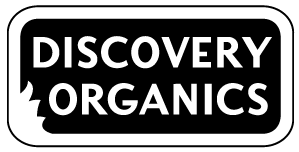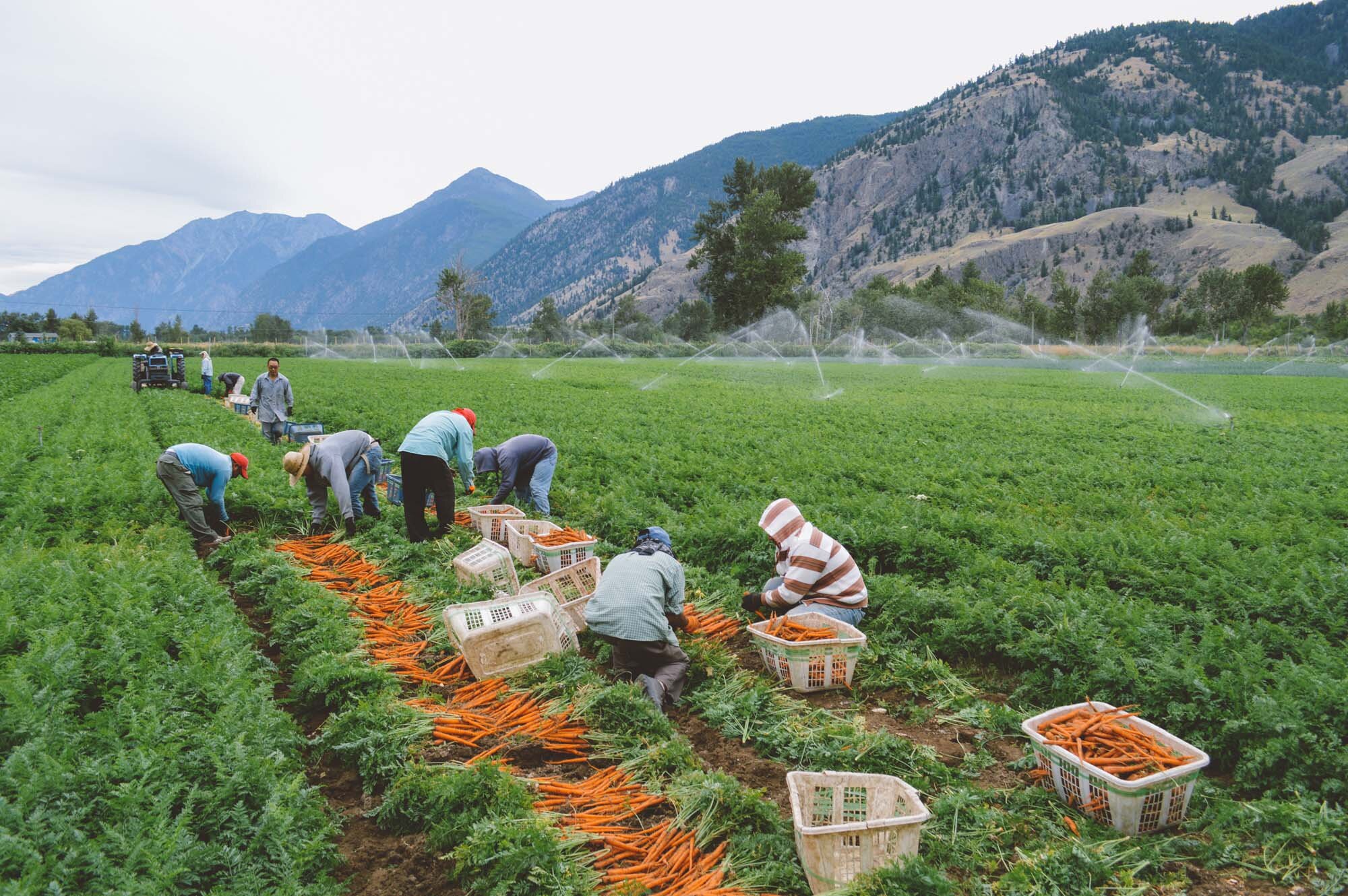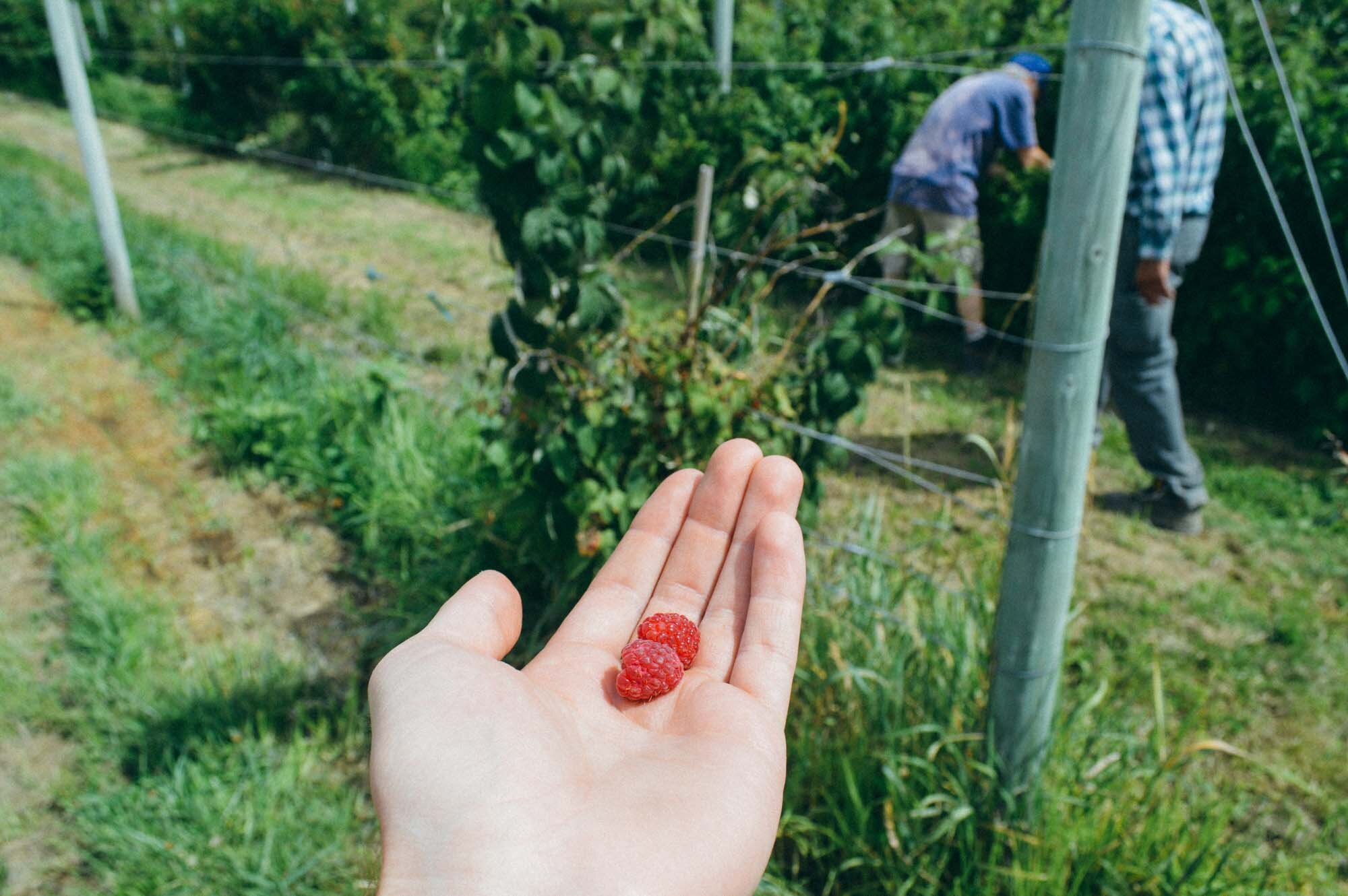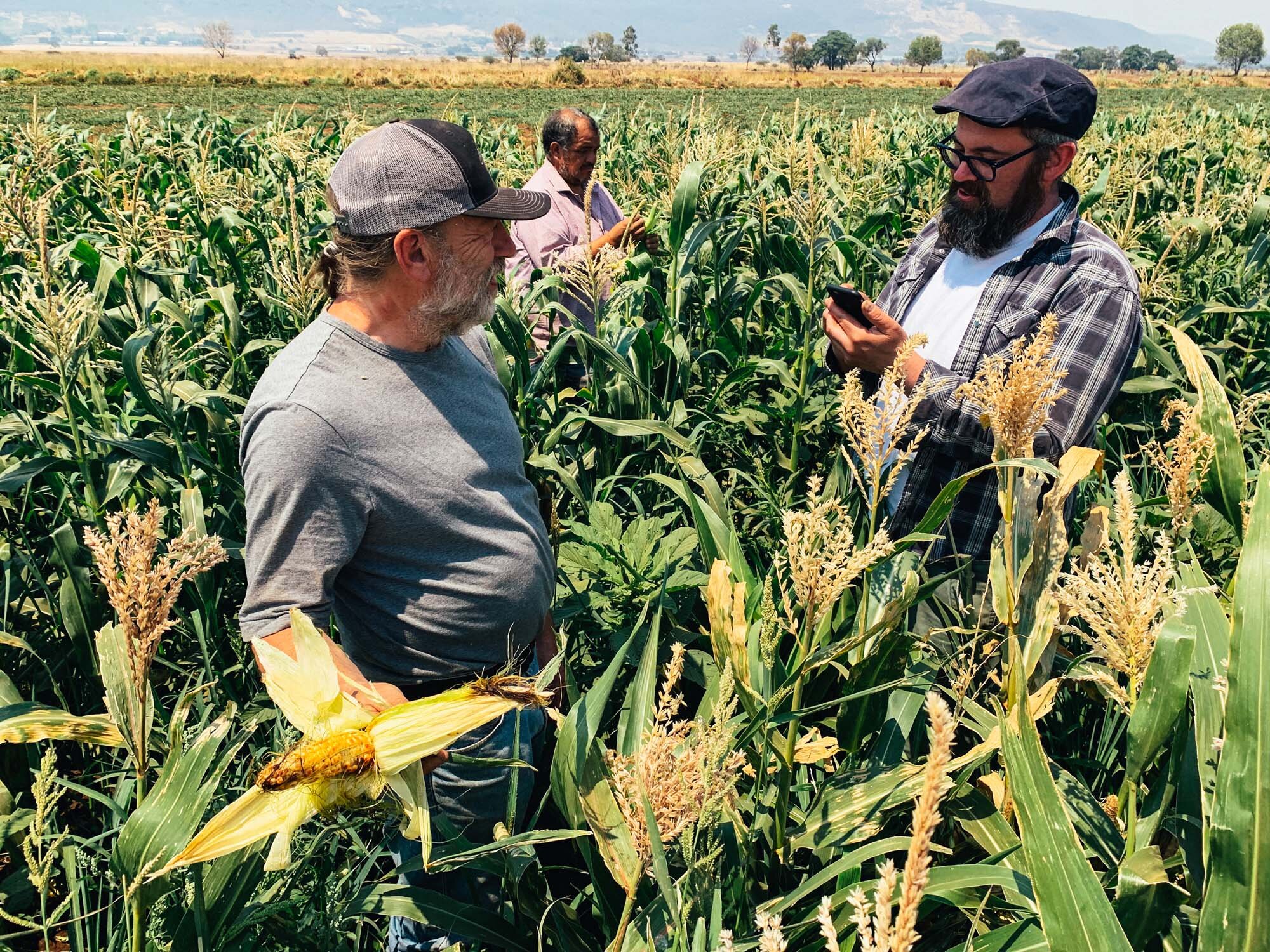
What is Organic Farming?
Organic agriculture promotes the sustainable health and productivity of the ecosystem – soil, plants, animals and people. Organic foods are farmed based on the environmental tenets of soil regeneration, water conservation and animal welfare.
Most people think of organic farming in terms of what is NOT allowed:
Produce and grains are grown without synthetic pesticides, herbicides, fertilizers or GMOs (genetically modified organisms)
Animals are never fed the by-products of other animals, and are not kept constantly caged indoors, without access to fresh air, or opportunities to socialize with other animals
Processed organic foods do not contain chemical preservatives or synthetic additives like colourings and waxes
Much more than that, organic farming is an active and labour-intensive dedication to being a steward of the land. Farmers learn the benefits of composting, cover cropping, beneficial pest management, encouraging biodiversity, animal welfare, and crop rotation. Through these methods, organic farmers prevent soil erosion, conserve energy, and help protect local wildlife, stream banks and watersheds. They help protect the global environment, as well: organic farming can greatly reduce the amount of greenhouse gases, such as carbon dioxide, that contribute to global warming.
There is nothing ‘trendy’ or new about organic farming: it is the way we have produced our food for thousands of years, until the very recent arrival of synthetic fertilizers and agri-chemicals in the last century. It is a challenging, yet rewarding, method of agriculture that is a return to roots and a reconnection to food, how it is grown, and where it is coming from.
Keep reading – Source: COABC
Organic Logo
The use of the Canada Organic logo is voluntary.
The logo is only permitted on products that have 95 per cent or more organic content and have been certified according to Canadian requirements for organic products.
Source: AC Nielsen Canada, Grocery LabelScan Study, Feb. 2009
Import of Organic Products
Imported products must meet the requirements of the Canada Organic Regime. Should imported products bear the Canada Organic logo they must include the following:
· the statement “Product of”, immediately preceding the name of the country of origin
· the statement “Imported”, must appear in close proximity to the logo or the designations.
Certifying bodies in other countries can certify farmers/producers to their own national standard, as well as prove the requirements of COR, if they have an equivalency agreement with Canada.
Source: www.inspection.gc.ca
Organic Farming and Consumption in Canada
40% of organic sales in mainstream retail are fresh fruits and vegetables.
There are over 3.3 million acres of organic farmland across Canada.
62% of the organic goods sold in Canada are imported, primarily from the US and Latin America.
88% of organic goods imported to Canada are fresh produce.
More than 66% of Canadians buy organic products weekly.
The value of the Canadian organic food market exceeded $6.3 billion in 2019.





